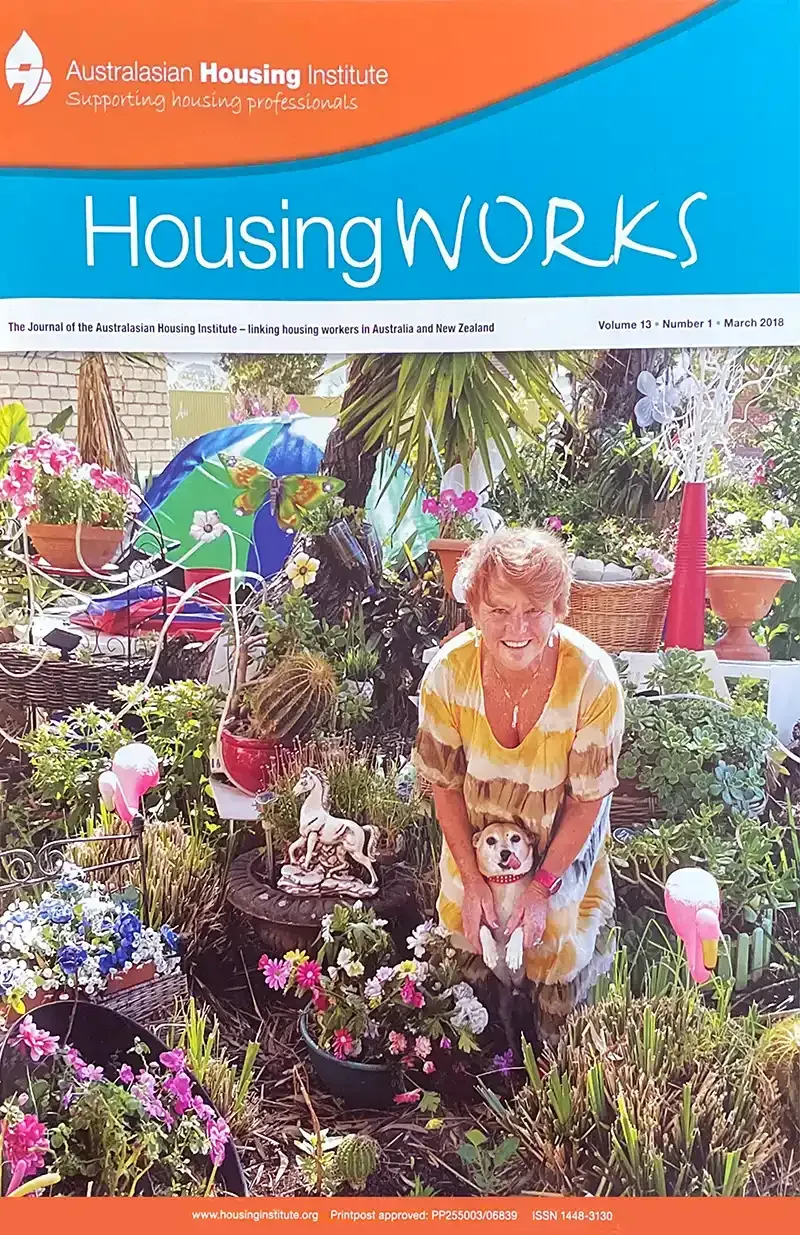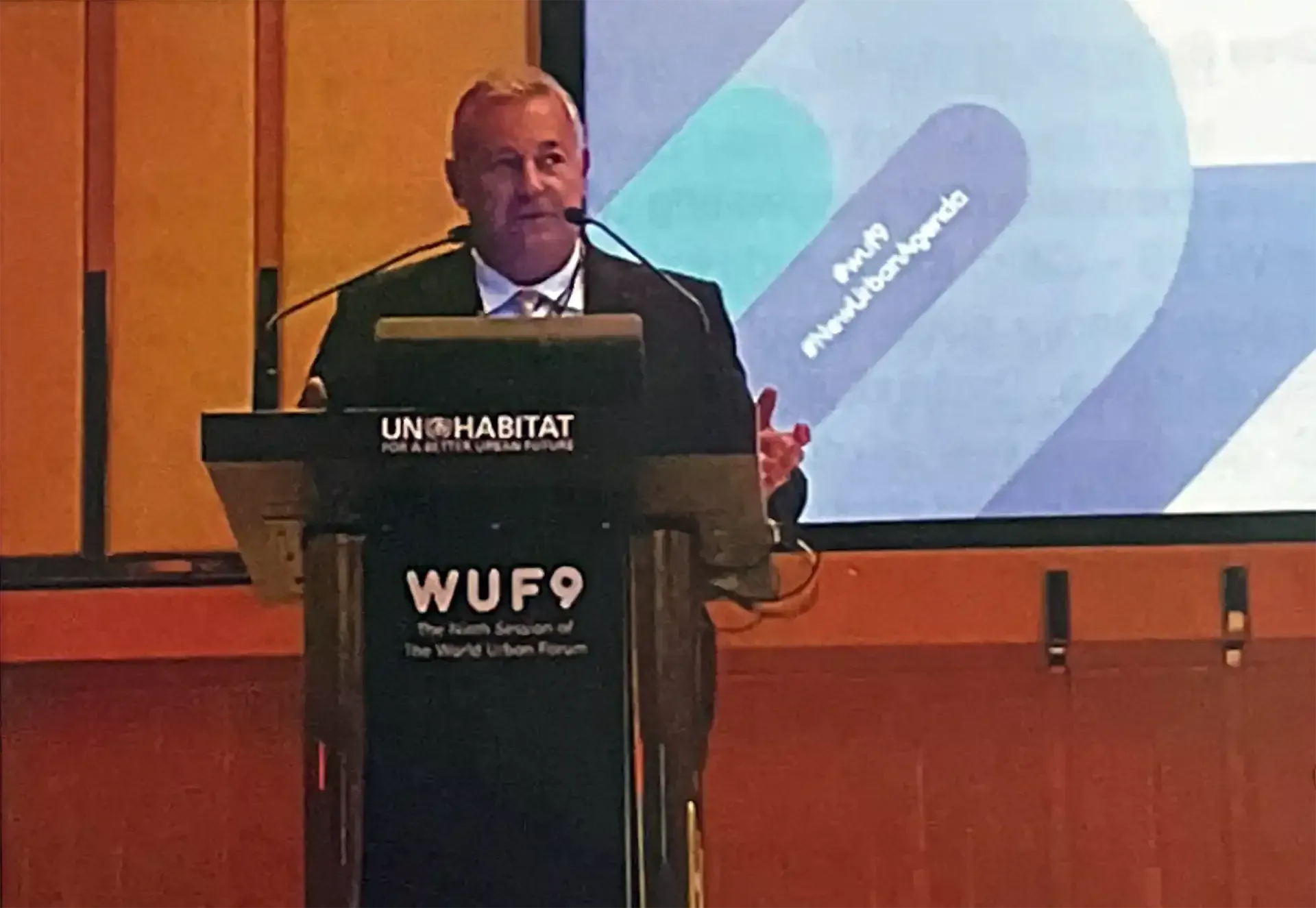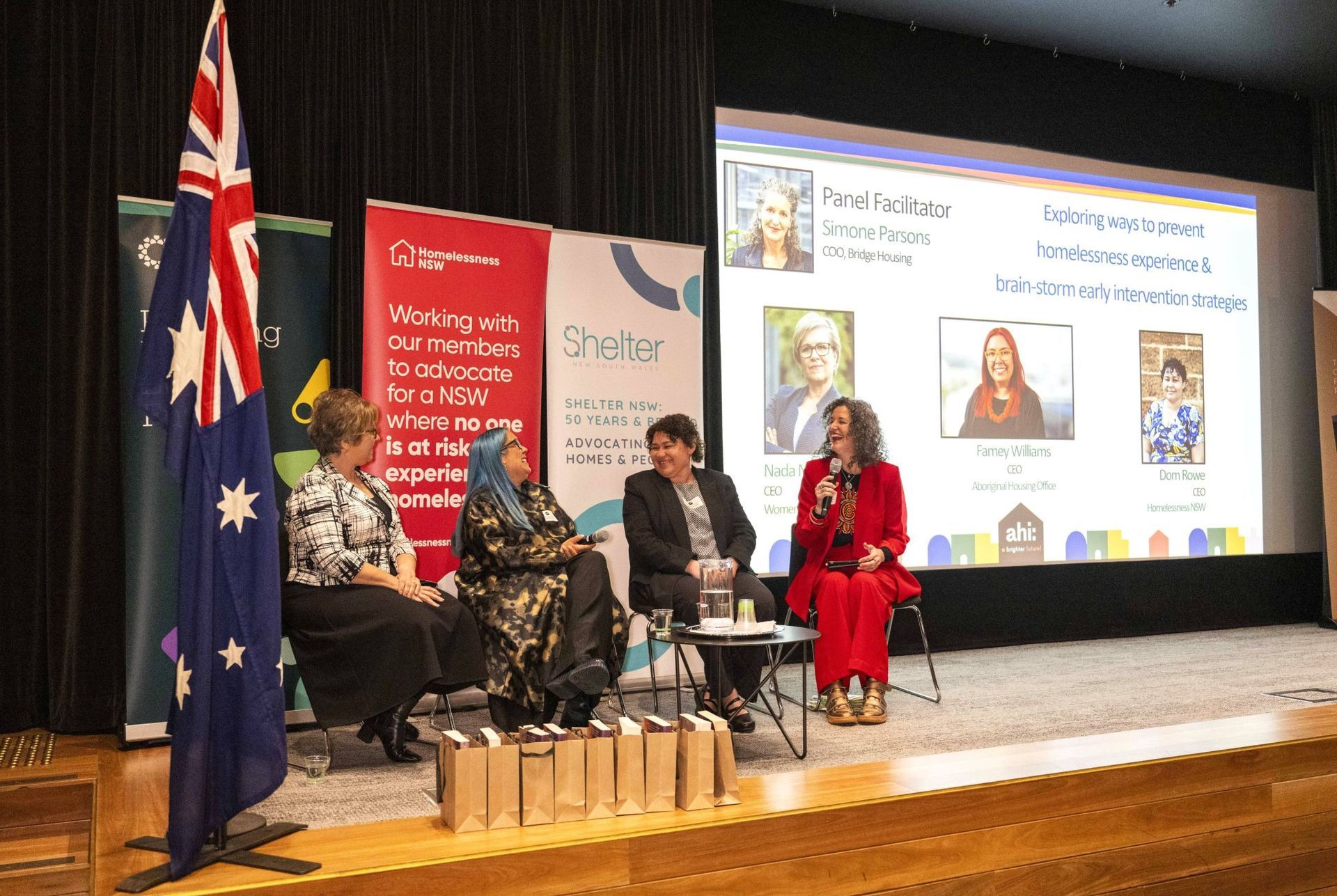ahi: President
Sean Kelly selects an article from the HousingWORKS print archive for our readers to revisit. Here, we travel back to World Urban Forum 9 and look at Lessons for the Australian Housing Sector.
"WUF9 was about the development of cities and urbanisation."
The issues being tackled by NUA are affecting Australian cities. The NUA highlights that the world's urban population is expected to nearly double by 2050 with cities home to 70% of the world's population. That brings challenges for poverty, urban economy, slums and informal settlements, social segregation, affordable housing, violence, food and water scarcity, and environmental issues.
Australia is already more than 70% urban. All of our major cities are ranked as severely unaffordable for housing (Demographia 2017). Poverty, homelessness and exclusion 1s increasing here.
Census data and some studies by McCrindle Research show that Sydney continues to lose local residents to other Australian cities. Those leaving are not tree or sea-changing retirees but people aged 25 to 44 and their families. Housing affordability 1s playing a big part in that migration and the future sustainability
of the city.
Lesson 1: Australia needs a national housing plan
There were 1 O recommendations from WUF9 in its Kuala Lumpur Declaration on Cities 2030. The first four were about frameworks.
Australia is missing a key framework, despite being a signatory to the NUA. A national housing plan, overseen by a national minister for housing, is the logical way to focus our limited resources on the best mix of policy and action to give people the fundamental social and economic benefit of an affordable roof over their head. It will enable people to be held accountable for delivering initiatives and measure their effectiveness.
The Australian Government was absent from WUF9 - a missed opportunity to hear from other nations about the frameworks they have in place to support sustainable development of cities. The United States has, for a long time, had a Housing and Urban Development portfolio within the President's Cabinet. Canada and New Zealand have both recently adopted national housing plans.
"As members of the Australasian housing sector, we need to lobby government for a national plan and encourage others to do the same."
As members of the Australasian housing sector, we need to lobby government for a national plan and encourage others to do the same. This is a key element of the newly launched Everybody's Home campaign. I encourage you and your organisations to get involved.
Lesson 2: Collaborate so others can help us solve the nation's housing crisis
Other recommendations were about governance and partnerships. Individually, we cannot solve all the issues. We can achieve more by influencing and working with others.
Compass Housing is based in the NSW city of Newcastle. It was pleasing to see the city's Mayor and Deputy Mayor attend WUF9. We continue to work with Council on a range of initiatives, from affordable housing to homelessness. The Council is signing up to the UN Global Compact Cities Programme, developed by Michael Nolan from RMIT and now auspiced by the UN. Engaging all sectors of the political class is critical to achieving our shared goals.
I had the pnvilege of moderating one of the main roundtables at WUF9 - Cities for All and Housing at the Centre - which featured senior government ministers from lndia, Paraguay, South Korea, Thailand, Morocco, Brazil, Germany and Singapore, as well as other distinguished representatives. I was even more excited about what these particpants had to say about their commitment to delivering affordable housing, and achieving greater social inclusion and sustainability.
India has a program to deliver 20 million affordable housing dwellings by the end of 2020. Singapore has eradicated slum dwelling and homelessness by providing affordable housing, and South Korea has a minister with responsibility for implementing the NUA.
"India has a program to deliver 20 millionn affordable housing dwellings by the end of 2020."
Sharing the actions and lessons learned from these programs is extremely valuable.
Lesson 3: Affordable housing investment is an economic stimulus not a drain on the public purse
The other major outcome of the roundtable was the endorsement of the proposition that Government investment in affordable housing reaps economic and social dividends for government. It is not to be simply viewed as a welfare cost.
Roundtable members spoke about how construction of housing provides an economic stimulus. They also spoke of the importance housing plays in ensuring people are effectively engaged in the economic life of a city. Benefits are multiplied when housing investment is linked to other infrastructure, education and employment plans.
Get Involved
At the end of the forum, delegates made a declaration of shared aspirations for future cities to be places for all; cities where no one is left behind. That is something worth working towards.










